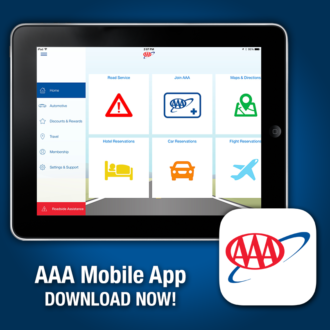Evaluate Your Driving Ability
Every time you get behind the wheel of a car, you must decide how to react to other vehicles and drivers, traffic signs and signals, highway conditions and your vehicle’s performance – and often take quick action. Would you like to know your driving performance?
Drivers 65 Plus is a brochure that features a 15-question self-rating driving assessment exercise designed to help you examine your driving performance. After answering the questions, follow the instructions to calculate your score and get information about your driving performance. The driving assessment will list your strengths and weaknesses, along with suggestions for how to improve your driving.
Because you want to be a safe driver as long as possible, consider getting a professional driving assessment. Your driving performance should be assessed regularly. Not only can this help you recognize and correct possible shortcomings, it also can result in a specialized drivers’ training plan to help you continue driving safely. Think about getting a professional driving assessment the same way you look at visiting your doctor for annual wellness checkups – as a smart way to identify and manage any physical or mental changes.
Professional driving assessments generally fall into two categories: driving skills evaluations and clinical driving assessments . A driving skill evaluation includes an in-car evaluation of your driving abilities and a recommendation regarding any further specialized drivers’ training. Clinical driving assessments are used to identify underlying medical causes of any driving performance deficits and offer ways to address them, so driving remains a safe option.
Consider getting a comprehensive driving skills evaluation or clinical driving assessment if:
- You are concerned that your driving skills may have diminished over time.
- You have concerns regarding results of informal self-assessments, such as Drivers 65 Plus.
- You have been diagnosed with a medical condition known to impact driving ability (e.g., impaired vision, dementia, diabetes, seizures, sleep disorders, stroke).
- You have experienced a recent increase in near misses or minor crashes (fender benders).
- Friends and/or family have suggested that you may not be fit to drive.
Conducted by state-licensed and trained driving instructors, in-car driving skills evaluations can provide a relatively quick and inexpensive checkup. Results may:
- Show that your driving skills are adequate and current, with no need for specialized drivers’ training.
- Reveal deficits that could be addressed with specialized drivers’ training.
- Lead to a recommendation for a clinical driving assessment by an occupational therapist driving rehabilitation specialist (OT-DRS).
Clinical assessments by trained specialists are the best way to learn the true level and cause of a decline in driving health. In some cases, getting a clinical driving assessment can help you to decide if you should continue to drive and if so, under which conditions. Results may:
- Show you are perfectly fit to drive without restrictions.
- Indicate you would benefit from extra training or need special adaptive vehicle equipment.
- Reveal that you are no longer safe to operate a motor vehicle.
If you are interested in getting a professional driving assessment, it’s important to understand the options. Two major types of trained professionals can provide skills evaluations or clinical driving assessments: driving skills evaluators and occupational therapist driving rehabilitation specialists . The services provided by each may seem very similar, but they are distinctly different.
- Occupational Therapist Driving Rehabilitation Specialists (OT-DRSs) plan, develop, coordinate and implement driving services for people with disabilities or have one or more medical conditions that affect driving.
- They are medically trained in the science of occupational therapy, which permits them to better understand progressive medical conditions and life changes that can affect driving.
- OT-DRSs also may have backgrounds in driver education, physical therapy, kinesiotherapy or psychology.
Clinical driving assessments are best if you have a broad spectrum of physical and cognitive disabilities, including dementia, stroke, arthritis, low vision, learning disabilities, limb amputations, neuromuscular disorders, spinal cord injuries, mental health problems, cardiovascular diseases and other causes of functional deficits.
Components of a clinical driving assessment
- Clinical driving assessment (including, but not limited to review of personal medical history and a cognitive assessment).
- Functional/on-road assessment (including, but not limited to adherence to traffic rules and regulations, consistent use of strategies to compensate for visual, cognitive, physical and behavioral impairments).
- Treatment and intervention (including, but not limited to adaptive driving instruction or specialized drivers’ training, with or without vehicle modifications).
Cost
- Varies between programs and according to the extent of services provided.
- Typically $200 to $400+ for a full assessment, plus $100 an hour for rehabilitation.
- Varies for adaptive equipment, if required. Examples of adaptive equipment include spinner knobs, left foot accelerators, hand controls, reduced-effort steering systems and wheelchair lifts.
To get a clinical driving assessment The American Occupational Therapy Association (AOTA) provides a nationwide database of driving programs and specialists. If you cannot find a resource here, contact your local rehabilitation hospital’s occupational therapy department for assistance.
Source: American Occupational Therapy Association and the Physician’s Guide to Assessing and Counseling Older Drivers
- Driving skills evaluators (DSEs) conduct evaluations to help you identify any weaknesses in driving skills and determine if supplemental training can further reduce driving risk.
- DSEs are trained, licensed and certified by states to offer driver training.
- DSEs are proficient in evaluating all aspects of driving skills, including vehicle operation, driver-vehicle fit and risk perception.
- In addition, some DSEs are certified driving rehabilitation instructors (CDRI) who can provide training on how to use adaptive equipment, such as hand controls.
Evaluations are best if you are concerned that your driving skills may have diminished; were recommended to take a driving skills evaluation by a physician, occupational therapist or family member; or may benefit from supplemental in-car training.
Components of a driving skills evaluation
- Comprehensive in-car evaluation of an individual’s driving skills at a particular point in time (including but not limited to the ability to follow traffic laws, assess the driving environment and take effective actions to reduce risk).
- Review of evaluation, which would provide recommendations for:
- Supplemental in-car training
- A clinical driving assessment by an OT-DRS
- No supplemental training
Driving skills evaluation does not identify underlying medically related causes of any reduced driving abilities. It is intended to be a snapshot of your abilities at a particular point in time. No training is conducted during a driving skills evaluation. Additional training is available from DSEs, if desired.
Cost
- Varies between programs and according to the extent of services provided.
- Approximately $100 to $200.
- Supplemental training sessions cost approximately $75 to $150 per hour, and overall costs vary, depending on the amount of training conducted.
To get a driving skills evaluation
- AAA has club-owned and Approved driving schools in many locations. Contact your local AAA club for more information.
- Safety
- AAA School Safety Patrol
- Bicycle Safety
- On the Road
- Riding Skills and Tips
- Child Passenger Safety
- Car Seat Safety
- Car Seat FAQs
- Distracted Driving
- AAA Center for Driving Safety and Technology
- The Risks of Distracted Driving
- Tips for Preventing Distracted Driving
- Driving Advice
- Aggressive Driving
- Dangers of Driving Into Sun
- Tips to Avoid Animal-Vehicle Collisions
- Wet Weather Driving Tips
- Winter Driving Tips
- Pedestrian Safety
- Roadway Safety
- Senior Driver Safety & Mobility
- AAA RoadWise Driver
- Evaluate Your Driving Ability
- Evolving Vehicle Technology
- Mobility Beyond Driving
- Senior Licensing Laws
- AAA’s Advocacy & Additional Resources
- Substance Impaired Driving
- Alcohol & Driving
- Drugs Other Than Alcohol
- Cannabis & Driving
- Prescription & Over-The-Counter Drugs & Driving
- Additional Substance Impaired Driving Resources
- Teen Driver Safety
- Understand the Facts & Risks
- Licensing Process
- Driver Education
- Pointers for Parents


The AAA Exchange was designed to foster communication between AAA and the 61 million members it represents. It is an extension of AAA’s long history of public service and provides a look into important safety, consumer, automotive and travel issues.
Copyright © 2022 AAA, All Rights Reserved.
Additional Resources
- Your Local AAA Club
- Join AAA
- AAA Newsroom


